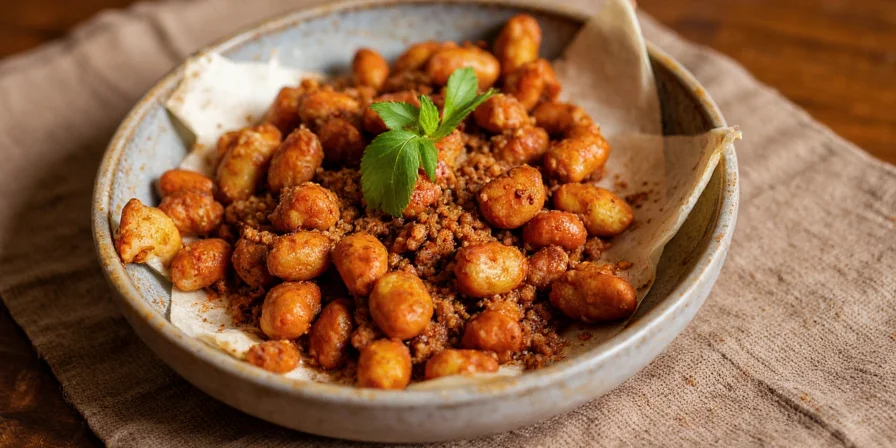Exploring the Flavorful Depths of Shawarma Spice
Shawarma spice is a mesmerizing blend that has captured the hearts and palates of food lovers around the globe. This unique spice mix finds its roots in Middle Eastern cuisine, where it plays a pivotal role in creating the iconic shawarma dish. But what exactly is shawarma spice, and how can it elevate your culinary creations? Join us as we delve into the aromatic world of shawarma spice, its ingredients, uses, and some delectable recipes that showcase its versatility.
What is Shawarma Spice?
Shawarma spice is a fragrant blend of spices that typically includes cumin, coriander, paprika, turmeric, garlic powder, and cinnamon, among others. Each ingredient contributes to the overall flavor profile of the spice, making it an essential component in shawarma—a dish of marinated meat that is slow-cooked on a vertical spit.
The Origins of Shawarma
Shawarma has a rich history that dates back to the Ottoman Empire. The method of cooking meat on a vertical spit is believed to have been inspired by the Turkish döner kebab, which influenced many Middle Eastern dishes. Over time, shawarma has evolved into a beloved street food, served in pita bread or on a plate with various accompaniments.
Key Ingredients of Shawarma Spice
| Ingredient | Flavor Profile | Health Benefits |
|---|---|---|
| Cumin | Earthy and nutty | Rich in antioxidants, aids digestion |
| Coriander | Citrusy and sweet | Anti-inflammatory properties, supports immune health |
| Paprika | Sweet and smoky | High in vitamins A and E, promotes healthy skin |
| Turmeric | Warm and slightly bitter | Anti-inflammatory, supports joint health |
| Garlic Powder | Pungent and savory | Boosts immune system, may reduce blood pressure |
| Cinnamon | Sweet and spicy | Regulates blood sugar, antioxidant-rich |
How to Use Shawarma Spice
Shawarma spice can be used in a variety of ways to enhance your dishes. Here are some popular applications:
- Marinades: Combine shawarma spice with yogurt and olive oil to create a flavorful marinade for meats like chicken, beef, or lamb. Allow the meat to marinate for at least a few hours or overnight for maximum flavor.
- Grilled Vegetables: Toss your favorite vegetables in olive oil and shawarma spice before grilling or roasting for a delicious side dish.
- Soups and Stews: Stir in shawarma spice while cooking soups or stews to add depth and warmth to the flavors.
- Rice and Grains: Add a teaspoon of shawarma spice to rice, quinoa, or couscous while cooking to infuse it with an exotic flair.
- Dressings: Incorporate shawarma spice into salad dressings or dips like hummus for a unique twist.
Homemade Shawarma Spice Blend Recipe
Creating your own shawarma spice blend at home is simple and allows you to customize the flavors to your liking. Here’s a basic recipe to get you started:
Ingredients:
- 2 tablespoons ground cumin
- 2 tablespoons ground coriander
- 2 tablespoons paprika
- 1 tablespoon ground turmeric
- 1 tablespoon garlic powder
- 1 teaspoon ground cinnamon
- 1 teaspoon black pepper
- 1 teaspoon cayenne pepper (optional, for heat)
Instructions:
- In a small bowl, combine all the ingredients.
- Mix well until fully combined.
- Store the spice blend in an airtight container, away from direct sunlight and moisture.
- Use within six months for optimal flavor.
Delicious Shawarma Recipes to Try
Now that you have a better understanding of shawarma spice, let’s explore some mouthwatering recipes that showcase its deliciousness.
Classic Chicken Shawarma
Ingredients:
- 2 pounds boneless, skinless chicken thighs
- 1 cup plain yogurt
- 3 tablespoons shawarma spice
- 2 tablespoons olive oil
- Juice of 1 lemon
- Salt and pepper to taste
Instructions:
- In a bowl, mix yogurt, shawarma spice, olive oil, lemon juice, salt, and pepper.
- Add chicken thighs to the marinade, ensuring they are well coated. Cover and refrigerate for at least 2 hours or overnight.
- Preheat the grill or oven to medium-high heat.
- Grill the chicken for about 6-7 minutes per side, or until fully cooked. Let it rest before slicing.
- Serve in pita bread with toppings like tomatoes, cucumbers, and tahini sauce.
Vegetarian Shawarma Bowls
Ingredients:
- 1 can chickpeas, drained and rinsed
- 2 tablespoons olive oil
- 3 tablespoons shawarma spice
- 1 cup cooked quinoa
- 1 cup diced cucumbers
- 1 cup chopped tomatoes
- 1/2 cup tahini sauce
- Fresh parsley for garnish
Instructions:
- Preheat the oven to 400°F (200°C).
- In a bowl, toss chickpeas with olive oil and shawarma spice.
- Spread the chickpeas on a baking sheet and roast for 20-25 minutes until crispy.
- In a bowl, layer cooked quinoa, roasted chickpeas, cucumbers, and tomatoes.
- Drizzle tahini sauce on top and garnish with fresh parsley.
Conclusion
Shawarma spice is more than just a flavor enhancer; it's a gateway to experiencing the rich culinary heritage of the Middle East. Whether you're marinating meats, spicing up vegetables, or creating unique dressings, this versatile spice blend can elevate your dishes to new heights. By making your own shawarma spice blend, you not only control the ingredients but also enjoy the satisfaction of creating something delicious from scratch. So, embark on your culinary journey with shawarma spice and let your taste buds experience the magic!
Illustrations

Homemade Shawarma Spice Blend

Delicious Chicken Shawarma

Healthy Vegetarian Shawarma Bowl










 浙公网安备
33010002000092号
浙公网安备
33010002000092号 浙B2-20120091-4
浙B2-20120091-4